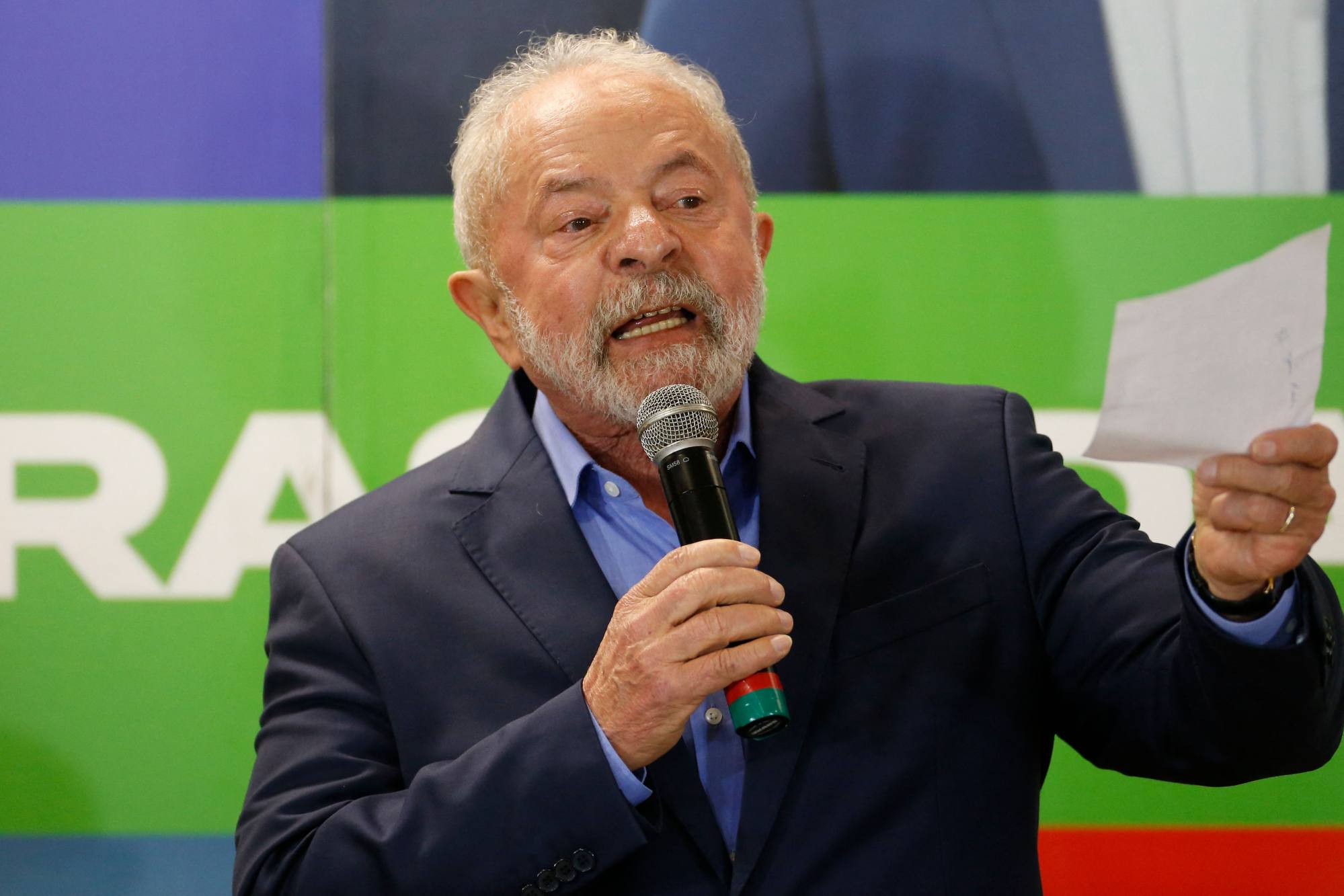
What does Brazilian presidential run-off hold for ties with top trading partner China?
- Incumbent Bolsonaro, known as the ‘Trump of the tropics’, expected to distance himself from Beijing
- Left-wing challenger Lula could strengthen bilateral ties and partnerships in the BRICS bloc
Brazil’s presidential election run-off at the end of this month between left-winger Lui Inacio Lula da Silva and far-right incumbent President Jair Bolsonaro could shake up the country’s relationship with China, its top trading partner.
Lula, who will turn 77 three days before the October 30 run-off election, visited China in 2004 with more than 450 businessmen, laying the foundations for a thriving economic partnership. Bilateral trade hit a record US$135 billion last year, rising for a fourth consecutive year despite the impact of the Covid-19 pandemic.
But China’s relationship with Brazil has been frosty under Bolsonaro’s watch since 2019 due to tensions over China’s economic dominance and the origins of Covid-19.
During the election campaign in 2018, Bolsonaro accused China of attempting to deindustrialise Brazil and complained that it was “buying Brazil, instead of buying from Brazil”.

During the early days of the pandemic in 2020, Bolsonaro’s son Eduardo, who is also an influential politician, said it was China’s fault and “has a name and surname: the Chinese Communist Party”.
Jorge Heine, a research professor at the Pardee School of Global Studies at Boston University and a former Chilean ambassador to China, said that Bolsonaro’s anti-China tone had been constantly challenged by trade and investment groups who were heavily dependent on China as a market for exported commodities such as soybean and beef.
Brazil heads for run-off as Bolsonaro beats expectations
“Once he took office, both the military and the agribusiness community made it clear to him he should stop the anti-China rants,” Heine said. “Bolsonaro complied and dutifully visited China in 2019.”
Jeff Garmany, an associate professor of Latin American studies at the University of Melbourne, said that many of Bolsonaro’s supporters were sceptical of China and that Bolsonaro played on that politically.
“Brazil is hugely dependent upon China for commodity exports and a major pillar of Bolsonaro’s support also comes from the agribusiness lobby, who benefit from commodity exports to China,” Garmany said.
Dong Jingsheng, deputy director of the Latin America Studies Centre at Peking University, said China had prioritised the economic and trade partnership over the presidential election.
“China and Brazil share a complementary trading partnership, especially in agribusiness and investment, and the partnership will stay solid despite the fluctuations in Brazil’s political orientation,” Dong said.

Margaret Myers, the director of the Asia and Latin America programme at the Inter-American Dialogue, a think tank based in Washington, said that a win for Lula would be a significant boon for the BRICS.
“Lula originally envisioned BRICS as an effort to assert developing nation independence over the US dollar in trade relations,” she said. “The goal was and continues to be upheld by China in countless policy documents and speeches, even more so now than when the BRICS grouping was established.”

Brazilian economist Karin Costa Vazquez, a senior non-resident fellow at the Centre for China and Globalisation, a think tank based in Beijing, said BRICS could return to the centre of Brazil’s foreign policy following the bloc’s inclusion in Lula’s election manifesto, adding that Bolsonaro’s BRICS achievements had been insufficient.
“The next president must clearly articulate BRICS’ potential with the advancement of Brazil’s national interests and the development of a global governance committed to peace, social inclusion and environmental sustainability,” she said.
Ralph Newmark, the director of the Institute of Latin American Studies at La Trobe University in Melbourne, said the candidates could have very different effects on the bloc.
“On the one hand, a Bolsonaro victory would strengthen the Russia-China authoritarian nationalist tone of the organisation, whilst a Lula win, in conjunction with South Africa and India, should help the BRICS move back to its original role of being a counterweight to excessive US domination and therefore promoting South-South development,” Newmark said.
In an interview with Chinese media last year, Lula praised China’s handling of the Covid-19 outbreak and its controversial strict quarantine policy.
“Europe, China and other more responsible countries have proven that the best solution for dealing with coronavirus is social isolation, followed by vaccines,” Lula said.
Brazil votes in historic Bolsonaro-Lula showdown
He also gave credit to the Communist Party of China and the country’s single-party leadership system for helping the country avoid major financial and medical crises.
“The reason that China was able to fight the coronavirus so fast is that it has a strong political party and a strong government, and the government has the right to control and command,” he said. “Brazil doesn’t have that, and other countries don’t have that.”



